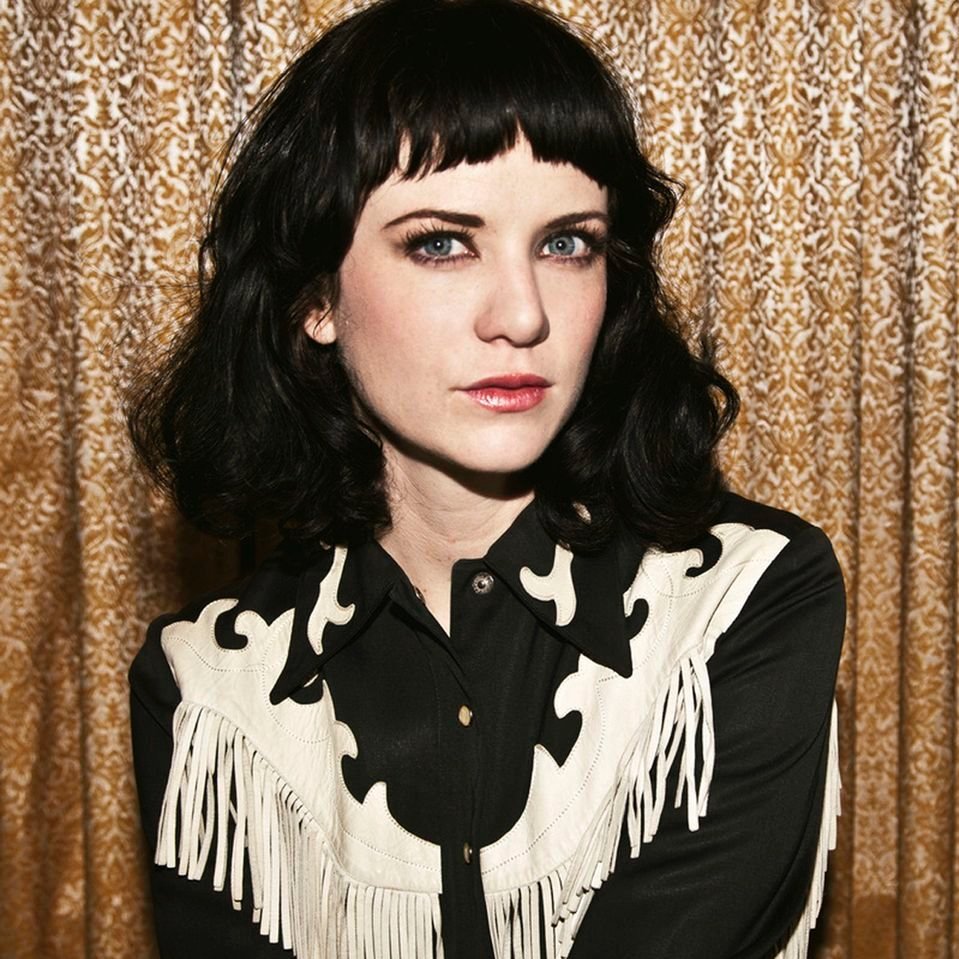Nikki Lane
WHEN NIKKI LANE was in eighth grade in Greenville, South Carolina, her basketball coach approached the chalkboard and scribbled “Complacency Kills” for her and her fellow middle-schoolers to digest. It lit a fire under the future country singer.
“Oh, that just burned me,” Lane tells Rolling Stone. “I grew up broke. I wanted money. I didn’t want to stress my mom. [From that moment], it was, ‘We’ll figure it out, just keep going.’”
And go and go and go. A day before Lane’s 39th birthday last month, the country singer-songwriter tore through an afternoon set at the Rebels & Renegades Music Festival in Monterey, California.
Nursing a hangover from opening for Midland the night before at the Greek Theatre in Los Angeles, Lane had three drinks near her feet onstage — shot of tequila, cup of coffee, bottle of Coca-Cola. Not to mention, lighting up two joints at once that were tossed her way from the crowd.
“You’ve got to just push ahead, and make sure the work is honest and fulfilling,” Lane says following the performance. “And make sure you carry yourself as a good person, too — that’s all you can really ask for.”
On her latest album, Denim & Diamonds (New West Records), Lane paired up with Queens of the Stone Age leader Josh Homme as producer to record at his California studio. What resulted is a raw and real offering at the crossroads of outlaw country, classic rock, and seductive pop — the location Lane has been targeting from various angles since she first burst onto the national scene with 2014’s All or Nothin’, produced by the Black Keys’ Dan Auerbach.
All or Nothin’ and its follow-up, 2017’s Highway Queen, were heavy on freewheeling, outlaw songs that rocked and grooved but also made it easy to miss the complexity in Lane’s artistry. She’s rowdy, yes, but she’s also able to communicate deep sensitivity and even resilience in her writing, along with the contradictions of being an avowed wild card. Listen to “Born Tough,” a Denim & Diamonds track in which she proudly sings about filing for divorce by the age of 29, then admits it’s “hard not to cry, so I have a thousand times.”
“I want to be free to do what I want. When I [recently] saw a mosh pit, I was like, ‘I’m not going in there.’ Eight minutes later, I’m in the air — that’s the feeling I seek,” Lane says. “That’s why I wanted to play music. I always thought of myself as a spectator. But then at some point, I needed to release my own feelings, and that came out in a melody.”
Backstage at the festival, Lane rushes up to the night’s headliner Cody Jinks, who watched Lane’s entire performance. They’re old road buddies and Jinks suggests he and Lane record a duet together. He digs her showmanship and her attitude, especially as it relates to touring.
“I’m one of the last generation that gets on the road and just goes. That’s me and Nikki,” Jinks says later on his tour bus. “We didn’t make it on TikTok and Instagram, we got in a van and [hit the road]. The road dogs will still win at the end of the day.”
“Who the fuck is going to tell Nikki Lane what to do? This many people,” Jinks adds, making a zero with index finger and thumb.
Leaving Jinks’ bus and making her way across the festival grounds to a set of bleachers, Lane is spotted by handfuls of fans. One young woman sprints over, asks for an autograph and a selfie, and tells Lane, “I wish I had a joint to give you.” Lane smiles and reaches into her bra, emerging with a joint of her own. “Well, shit,” she says, handing it to the woman, “let’s just switch the narrative.”
Garret K Woodward, for Rolling Stone

